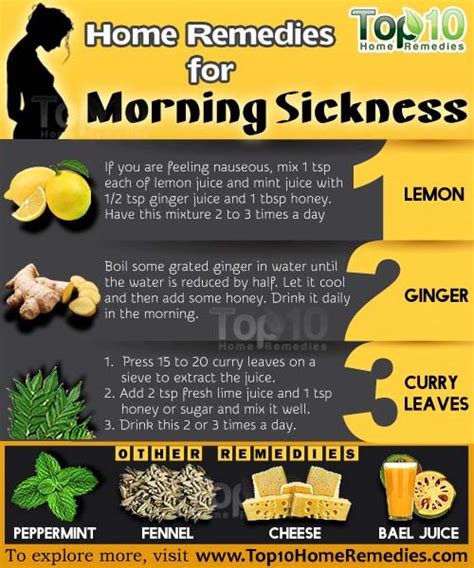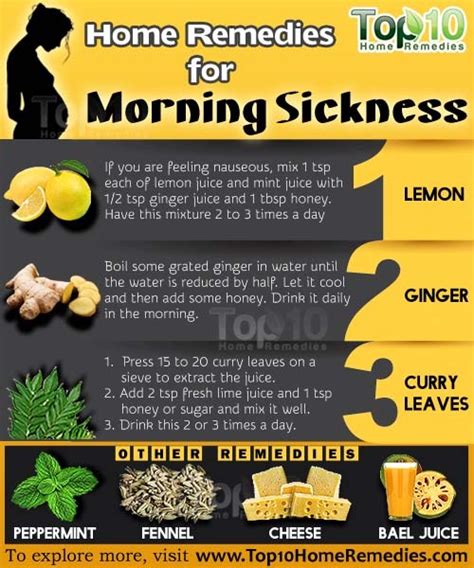Intro
Discover effective Morning Sickness Relief Treatments, including natural remedies, dietary changes, and medications, to alleviate nausea, vomiting, and discomfort during pregnancy, promoting a healthier morning routine.
Morning sickness is a common symptom experienced by many women during the early stages of pregnancy. It is characterized by feelings of nausea and vomiting, which can be triggered by various factors, including hormonal changes, fatigue, and certain smells or tastes. While morning sickness can be uncomfortable and debilitating, there are several relief treatments available to help manage its symptoms. In this article, we will explore the importance of addressing morning sickness, its causes, and the various treatment options available to provide relief to expectant mothers.
Morning sickness can have a significant impact on a woman's daily life, affecting her ability to work, care for her family, and maintain her overall well-being. If left unmanaged, morning sickness can lead to dehydration, weight loss, and other complications that can affect the health of both the mother and the baby. Therefore, it is essential to seek relief treatments that can help alleviate its symptoms and improve the quality of life for expectant mothers. With the right treatment approach, women can manage their morning sickness and enjoy a healthier, happier pregnancy.
The causes of morning sickness are complex and multifactorial, involving hormonal, psychological, and physiological factors. During pregnancy, the body undergoes significant changes, including the production of human chorionic gonadotropin (hCG), which can contribute to feelings of nausea and vomiting. Additionally, fatigue, stress, and certain smells or tastes can trigger morning sickness in some women. Understanding the causes of morning sickness is crucial in developing effective relief treatments that address its underlying factors.
Morning Sickness Relief Treatments

Morning sickness relief treatments can be categorized into several approaches, including lifestyle modifications, dietary changes, and medical interventions. Lifestyle modifications, such as getting plenty of rest, staying hydrated, and avoiding triggers, can help alleviate morning sickness symptoms. Dietary changes, such as eating small, frequent meals and avoiding spicy or fatty foods, can also provide relief. Medical interventions, such as taking vitamin B6 supplements or anti-nausea medications, can be effective in managing morning sickness symptoms.
Lifestyle Modifications for Morning Sickness Relief
Lifestyle modifications play a crucial role in managing morning sickness symptoms. Getting plenty of rest, staying hydrated, and avoiding triggers can help alleviate nausea and vomiting. Additionally, practicing relaxation techniques, such as deep breathing, meditation, or yoga, can help reduce stress and anxiety, which can contribute to morning sickness. Women can also try to identify and avoid triggers, such as certain smells or tastes, and develop a daily routine that includes regular meals and snacks to help stabilize their blood sugar levels.Dietary Changes for Morning Sickness Relief

Dietary changes can also provide relief from morning sickness symptoms. Eating small, frequent meals throughout the day can help stabilize blood sugar levels and reduce nausea. Avoiding spicy or fatty foods, which can trigger nausea, and opting for bland, easily digestible foods, such as crackers, toast, or plain rice, can also help. Additionally, staying hydrated by drinking plenty of water, clear broths, or electrolyte-rich beverages, such as sports drinks, can help replace lost fluids and electrolytes.
Medical Interventions for Morning Sickness Relief
Medical interventions can be effective in managing morning sickness symptoms, especially in severe cases. Vitamin B6 supplements, for example, have been shown to reduce nausea and vomiting in some women. Anti-nausea medications, such as metoclopramide or ondansetron, can also be prescribed to help manage morning sickness symptoms. However, it is essential to consult with a healthcare provider before taking any medication, as some may have potential side effects or interact with other medications.Alternative Therapies for Morning Sickness Relief

Alternative therapies, such as acupuncture, acupressure, or aromatherapy, can also provide relief from morning sickness symptoms. Acupuncture, for example, involves the insertion of thin needles into specific points on the body to stimulate healing and balance. Acupressure, which involves applying pressure to specific points on the body, can also help alleviate nausea and vomiting. Aromatherapy, which involves inhaling essential oils, such as peppermint or ginger, can help reduce nausea and improve mood.
Herbal Remedies for Morning Sickness Relief
Herbal remedies, such as ginger, peppermint, or chamomile, can also provide relief from morning sickness symptoms. Ginger, for example, has natural anti-inflammatory properties that can help reduce nausea and vomiting. Peppermint, which has a calming effect on the stomach, can help alleviate nausea and improve digestion. Chamomile, which has a soothing effect on the nervous system, can help reduce anxiety and promote relaxation.Managing Morning Sickness in the Workplace

Managing morning sickness in the workplace can be challenging, but there are several strategies that can help. Communicating with employers and colleagues about morning sickness symptoms can help them understand the need for accommodations, such as flexible work schedules or frequent breaks. Women can also try to identify and avoid triggers, such as certain smells or tastes, and develop a daily routine that includes regular meals and snacks to help stabilize their blood sugar levels.
Coping with Morning Sickness Emotionally
Coping with morning sickness emotionally can be just as challenging as managing its physical symptoms. Women may experience feelings of anxiety, depression, or frustration, which can affect their relationships with family and friends. Practicing self-care, such as getting enough rest, engaging in relaxation techniques, or seeking support from loved ones, can help women cope with the emotional aspects of morning sickness.Conclusion and Next Steps

In conclusion, morning sickness is a common symptom experienced by many women during the early stages of pregnancy. While it can be uncomfortable and debilitating, there are several relief treatments available to help manage its symptoms. By understanding the causes of morning sickness and exploring various treatment options, women can find relief and improve their quality of life during pregnancy. If you are experiencing morning sickness symptoms, it is essential to consult with a healthcare provider to develop a personalized treatment plan that meets your unique needs.
We invite you to share your experiences with morning sickness and any relief treatments that have worked for you. Your comments and feedback can help other women who are struggling with morning sickness symptoms. Additionally, if you have any questions or concerns about morning sickness or its treatment, please do not hesitate to ask. We are here to provide you with the information and support you need to navigate this challenging time.
What are the most common symptoms of morning sickness?
+Morning sickness symptoms can vary from woman to woman, but common symptoms include nausea, vomiting, fatigue, and sensitivity to certain smells or tastes.
How long does morning sickness typically last?
+Morning sickness typically lasts throughout the first trimester of pregnancy, but it can persist into the second trimester in some women.
What are some effective relief treatments for morning sickness?
+Effective relief treatments for morning sickness include lifestyle modifications, dietary changes, medical interventions, and alternative therapies, such as acupuncture, acupressure, or aromatherapy.
